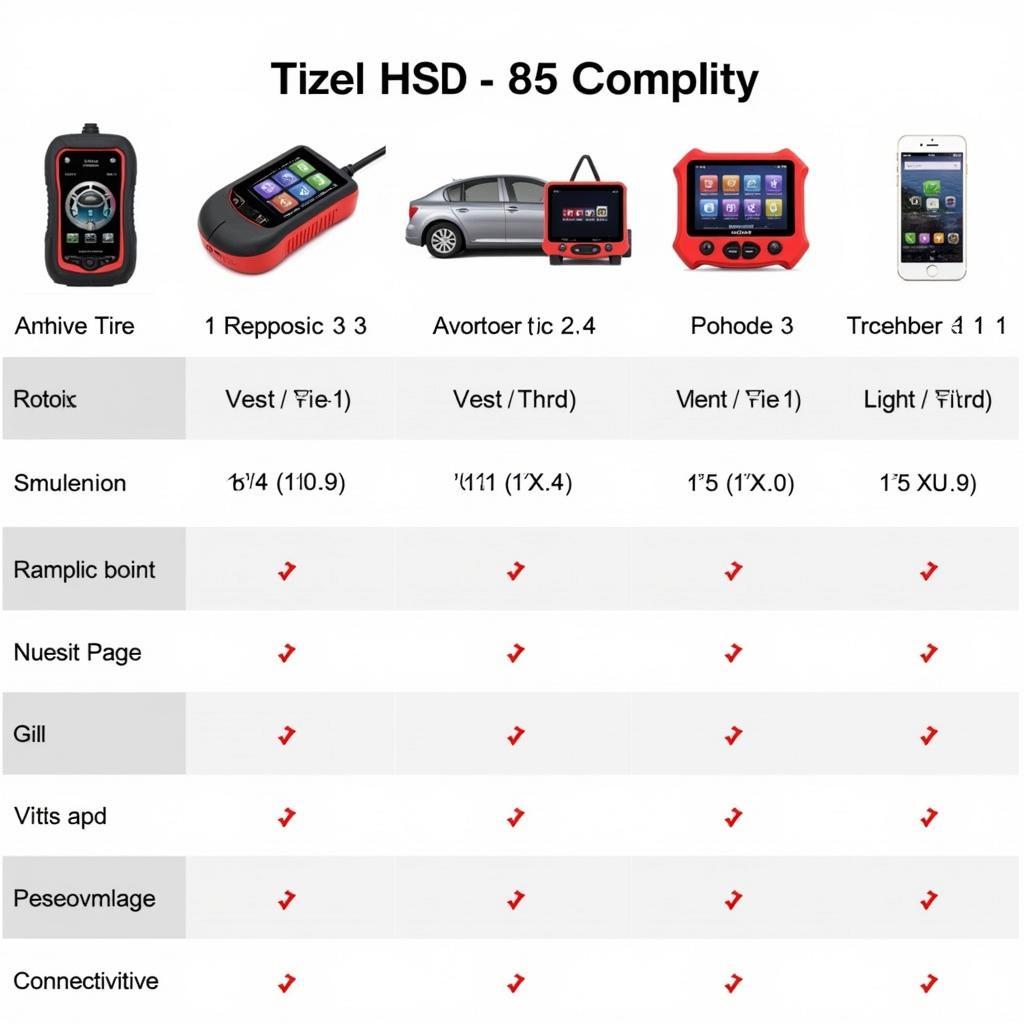In the ever-evolving automotive landscape, having a Good Car Diagnostic Tool is no longer a luxury but a necessity. Whether you’re a seasoned mechanic or a car enthusiast looking to troubleshoot your vehicle, a reliable diagnostic tool can save you time, money, and unnecessary headaches. But with a plethora of options available, finding the right one can feel overwhelming. This comprehensive guide will equip you with the knowledge to choose the best car diagnostic tool for your specific needs.
Understanding Car Diagnostic Tools: What to Look For
Car diagnostic tools have come a long way from simple code readers. Modern tools offer a wide array of features, from reading and clearing basic trouble codes to providing live data streams and performing advanced functions like ECU programming. When choosing a car diagnostic tool, consider these crucial factors:
1. Vehicle Compatibility:
Ensure the tool supports the make, model, and year of your vehicle(s). Some tools specialize in certain manufacturers, while others offer broader coverage.
2. Functionality:
Determine the features essential for your needs. Do you need basic code reading or more advanced functions like bi-directional control and component activation?
3. User Interface:
Opt for a tool with an intuitive and user-friendly interface. Consider factors like screen size, menu navigation, and data presentation.
4. Connectivity:
Check for connectivity options like Bluetooth, USB, or Wi-Fi, allowing for seamless data transfer and software updates.
5. Software and Updates:
Ensure the tool comes with regular software updates to stay compatible with the latest vehicle models and technologies.
Types of Car Diagnostic Tools: From Basic to Professional
Car diagnostic tools cater to a wide range of users, from DIY enthusiasts to professional mechanics. Here are the most common types:
1. Code Readers:
These entry-level tools primarily read and clear basic diagnostic trouble codes (DTCs). They are budget-friendly but offer limited functionality.
2. OBD2 Scanners:
Offering a step up from code readers, OBD2 scanners provide more detailed information about DTCs, including freeze frame data and live sensor readings.
3. Professional-Grade Scanners:
These high-end tools offer comprehensive functionality, including advanced diagnostics, bi-directional control, coding, programming, and access to manufacturer-specific systems.
4. Smartphone/Tablet-Based Tools:
These tools utilize mobile apps and connect to your vehicle’s OBD2 port via Bluetooth or Wi-Fi. They are convenient and often budget-friendly but may have limitations in functionality compared to dedicated scanners.
 Types of Car Diagnostic Tools
Types of Car Diagnostic Tools
Benefits of Using a Good Car Diagnostic Tool
Investing in a good car diagnostic tool offers numerous benefits:
- Accurate Diagnosis: Identify car problems quickly and accurately, eliminating guesswork and saving time.
- Cost Savings: Avoid unnecessary trips to the mechanic by diagnosing and resolving issues yourself.
- Preventative Maintenance: Monitor vehicle health, identify potential problems early on, and prevent costly breakdowns.
- Increased Knowledge: Gain a deeper understanding of your vehicle’s systems and how they operate.
- Enhanced Resale Value: Maintaining a well-documented service history with diagnostic reports can increase your vehicle’s resale value.
Choosing the Right Tool for You: DIY vs. Professional
The best car diagnostic tool for you depends on your individual needs and expertise.
DIY Enthusiasts: A good cheap car diagnostic tool uk or a capable OBD2 scanner with live data streaming and some advanced features might suffice.
Professional Mechanics: A professional-grade scanner with comprehensive functionality, manufacturer-specific coverage, and regular software updates is essential.
Conclusion: Empowering Informed Decisions
Finding the right car diagnostic tool is an investment that empowers you to take control of your vehicle’s health and maintenance. By understanding your needs, researching different types of tools, and considering the factors outlined in this guide, you can make an informed decision and find the best good car diagnostic tool to keep your vehicle running smoothly for years to come.

Leave a Reply